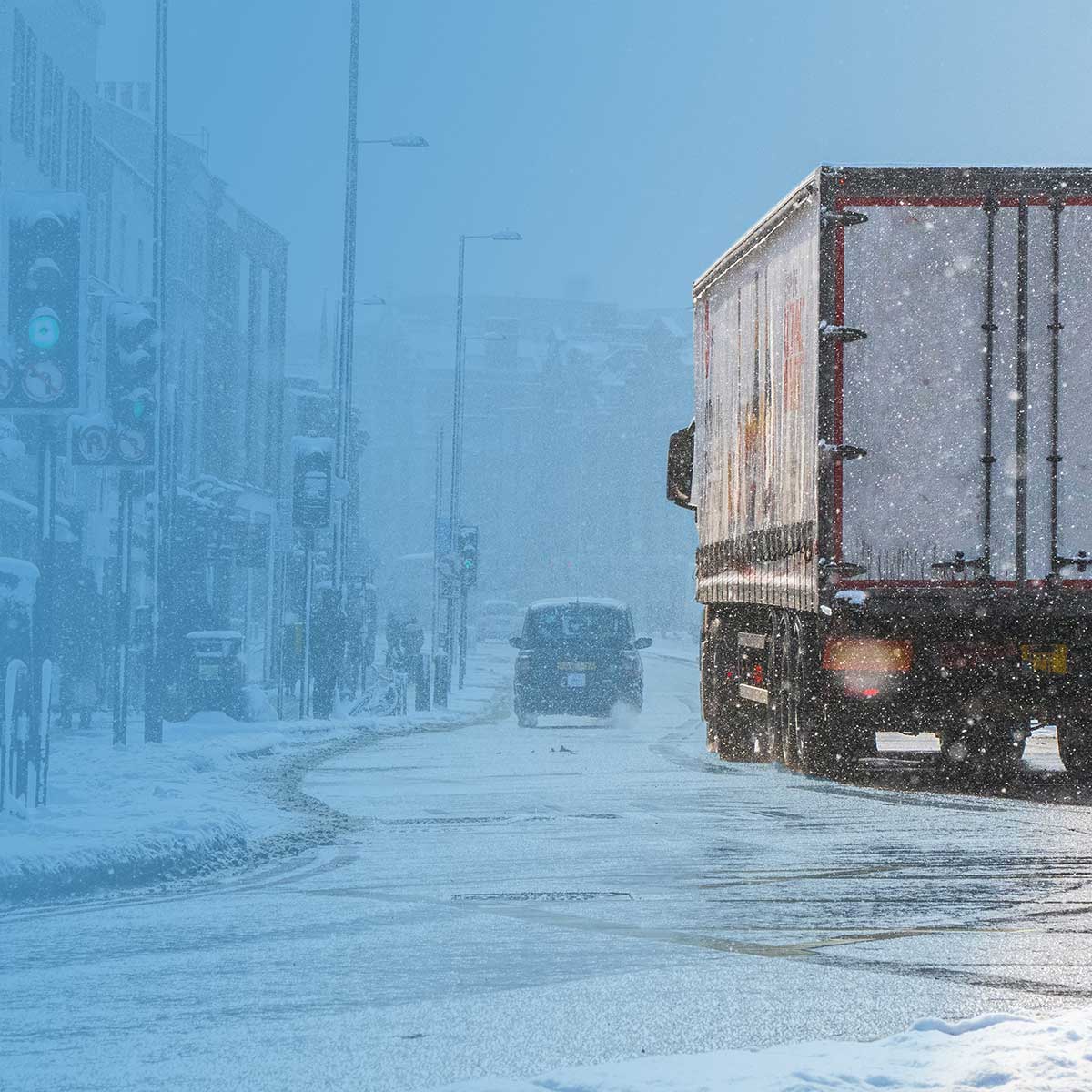DVS Systems mandatory for 12t+ vehicles in Greater London
This initiative aims to enhance road safety by reducing blind-spot-related accidents involving vulnerable road users

Direct Vision Standard (DVS) is a mandatory requirement for all vehicles over 12 tonnes gross vehicle weight operating in the Greater London area. This initiative aims to enhance road safety by reducing blind-spot-related accidents involving vulnerable road users, such as cyclists and pedestrians. While this move has been widely praised for improving safety, it comes with costs that fleet operators must consider, although compliance does bring with it potential insurance benefits. Here, we look at the full picture.
What is the Direct Vision Standard (DVS)?
The DVS is a Transport for London (TfL) initiative that assesses how much a driver can see directly from their cab without the use of mirrors or cameras. Vehicles receive a star rating from 0 to 5, based on their visibility standards.
Since the initiative started in October 2024, vehicles with a rating of 3 stars or above can operate in Greater London once they hold a valid safety permit. Vehicles with a rating of 0, 1, or 2 stars must be fitted with the Progressive Safe System (PSS) in order to qualify for a safety permit. The PSS includes updated safety technology, such as cameras, sensors, and audible warnings, designed to alert drivers and vulnerable road users of potential hazards.
This strengthened requirement is designed to improve road safety in busy urban environments where visibility challenges often lead to accidents. By equipping vehicles with better vision capabilities, the initiative aims to significantly reduce the number of serious collisions involving heavy goods vehicles.
Why compliance is crucial
Non-compliance with the DVS regulations can lead to fines of up to £550 (reduced to £275 if paid within 14 days) for operators entering Greater London without a valid safety permit or without meeting permit conditions. Additionally, failure to adhere to these standards could result in increased liability in the event of an accident.
However, investing in DVS compliance is not just about avoiding fines. Improved visibility significantly reduces accident risks, leading to fewer claims, reduced vehicle downtime, and enhanced driver confidence.
Many fleet operators are finding that compliance is an opportunity to modernise their vehicles and adopt the latest safety technologies. By upgrading fleet vehicles to meet DVS standards, companies can enhance their reputation as responsible operators who prioritise road safety. Furthermore, being DVS-compliant may provide businesses with a competitive advantage when bidding for contracts, as clients increasingly prefer working with transport providers who meet high safety standards.
Insurance benefits of improved visibility
One of the key advantages of installing a DVS-Compliant Progressive Safe System is the potential for lower insurance premiums. By demonstrating a commitment to road safety and risk mitigation, fleet operators may be able to negotiate better terms with insurers. Reduced accident rates can lead to fewer claims, improving an operator's claims history and, ultimately, insurance costs.
Insurance providers recognise that vehicles equipped with advanced visibility technology are less likely to be involved in serious accidents. This can result in more favourable premium rates, helping businesses offset the initial cost of compliance. Additionally, fewer accidents mean lower repair and replacement expenses, contributing to long-term financial savings for operators.
Cost-effective ways to adapt to DVS
Fleet operators concerned about the financial impact of compliance can take several steps to adapt cost-effectively:
- Plan ahead: Installing Progressive Safe System kits in advance can help spread costs over time rather than facing urgent compliance expenses.
- Explore grants & funding: Some government initiatives may provide funding assistance for safety upgrades.
- Seek insurance discounts: Work with insurers that recognise DVS compliance as a risk-reducing measure and offer premium incentives.
- Invest in driver training: Ensuring that drivers understand how to use the new technology can maximise the benefits of improved visibility and further reduce accident risks.
How PIB can help
At PIB Insurance Brokers, we specialise in transport and logistics insurance solutions. With extensive experience in the haulage sector, we work with a panel of leading insurers to offer tailored policies that ensure comprehensive protection. Whether you operate a small fleet or a large haulage company, our dedicated team will help secure a policy that safeguards your cargoes, trucks, and drivers against current and emerging risks.
Our dedicated haulage team understands the unique challenges faced by hauliers and can advise on the best policies to suit your business model. By working with PIB, you gain access to industry-leading expertise, ensuring that you remain protected while staying compliant with evolving safety regulations. As part of the wider PIB Group, we can facilitate a chat with our colleagues at PIB Risk Management, who are experts in health & safety, training, consultancy, HR and all aspects of risk management for your haulage business.
